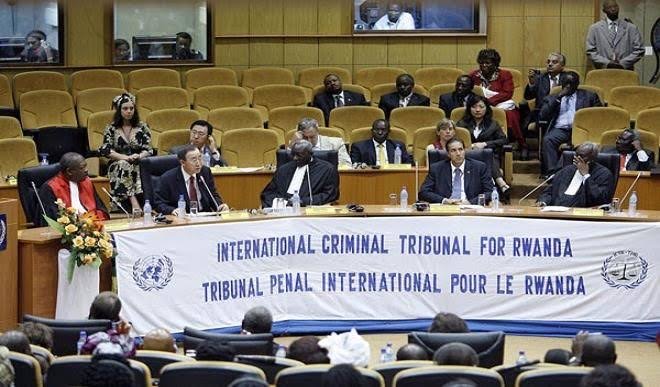UN tribunal begins trial of Rwandan genocide suspect despite boycott

A UN tribunal in The Hague on Thursday opened the genocide trial of a Rwandan businessman captured two years ago after decades on the run.
The judges said that the hearing must go on in spite of the suspect’s decision to boycott it from his jail cell.
Felicien Kabuga, a former businessman and radio station owner, was one of the last suspects sought by a UN tribunal prosecuting crimes committed in the 1994 genocide, when ruling Hutu majority extremists killed more than 800,000 minority Tutsis and Hutu moderates in 100 days.
Mr Kabuga, “is this morning well but has decided not to attend the hearing either in person or via video link,’’ Judge Iain Bonomy said.
“The trial must proceed’’ with the opening statement of the prosecutor, the judges decided.
Mr Kabuga is in his mid-to-late 80s, though his precise date of birth is disputed.
He was arrested in May 2020 in Paris between COVID-19 lockdowns and extradited to The Hague where he has entered a not-guilty plea.
The Prosecutors have charged the former coffee and tea tycoon with three counts of genocide and two counts of crimes against humanity, primarily for promoting hate speech through his broadcaster, Radio Television Libre des Milles Collines (RTLM).
He is also accused of arming ethnic Hutu militias.
UN prosecutor Rashid Rashid said in his opening statement that Mr Kabuga did not need to wield a rifle or a machete at a roadblock. Rather, he supplied weapons in bulk and facilitated the training that prepared the Interahamwe (Hutu militias) to use them,’’
Mr Rashid added that Mr Kabuga had founded a radio station that “broadcast genocidal propaganda across Rwanda”.
Earlier, UN prosecutor Serge Brammertz told journalists after Thursday’s hearing that Mr Kabuga’s no-show was a strategic decision from his side but said it would not affect the proceedings.
Because of Mr Kabuga’s advanced age and fragile health the court will only sit for six hours a week, divided into two days.
Mr Brammertz said the prosecution case will take several months.
“Time is essential here so we hope this trial can proceed as fast as possible,” Mr Brammertz said.
The defence is due to make its opening statement when the trial resumes on Friday.
(Reuters/NAN)
We have recently deactivated our website's comment provider in favour of other channels of distribution and commentary. We encourage you to join the conversation on our stories via our Facebook, Twitter and other social media pages.
More from Peoples Gazette

Politics
Katsina youths pledge to deliver over 2 million votes to Atiku
“Katsina State is Atiku’s political base because it is his second home.”

Port Harcourt
Burnt Rivers Assembly: Court sets aside arrest warrant against Fubara’s chief of staff
On January 31, the judge issued a warrant for the arrest of Mr Ehie over his alleged involvement in the burning of part of the Rivers’ House of Assembly.

Politics
Keyamo overreacting, should apologise, lift Dana’s flight suspension: ART
Aviation minister Festus Keyamo has been reprimanded for trying to usurp the authority of the NCAA.

NationWide
Merging Civil Defence with police will worsen Nigeria’s insecurity, FG warned
“It is obvious that persons seeking the merger are ignorant of the roles of NSCDC as a special purpose security vehicle,” a security expert said.

Africa
South Africa’s systemic corruption closely related to ex-President Jacob Zuma’s administration: Report
The report alleged that “high-level political interference has undermined the country’s National Prosecuting Authority from responding to corruption.

Africa
Police corruption big problem in Kenya; security force compromised under President Ruto: U.S. Govt
Not only did the government try to cover up police-related killings, but Kenyan authorities asked medical personnel to keep silent on deaths recorded from police brutality.

NationWide
No one should die of malaria in Africa: WHO
“No one should die from malaria in Africa; indeed, every single malaria death is a death too many because malaria is preventable and treatable,” said WHO.








